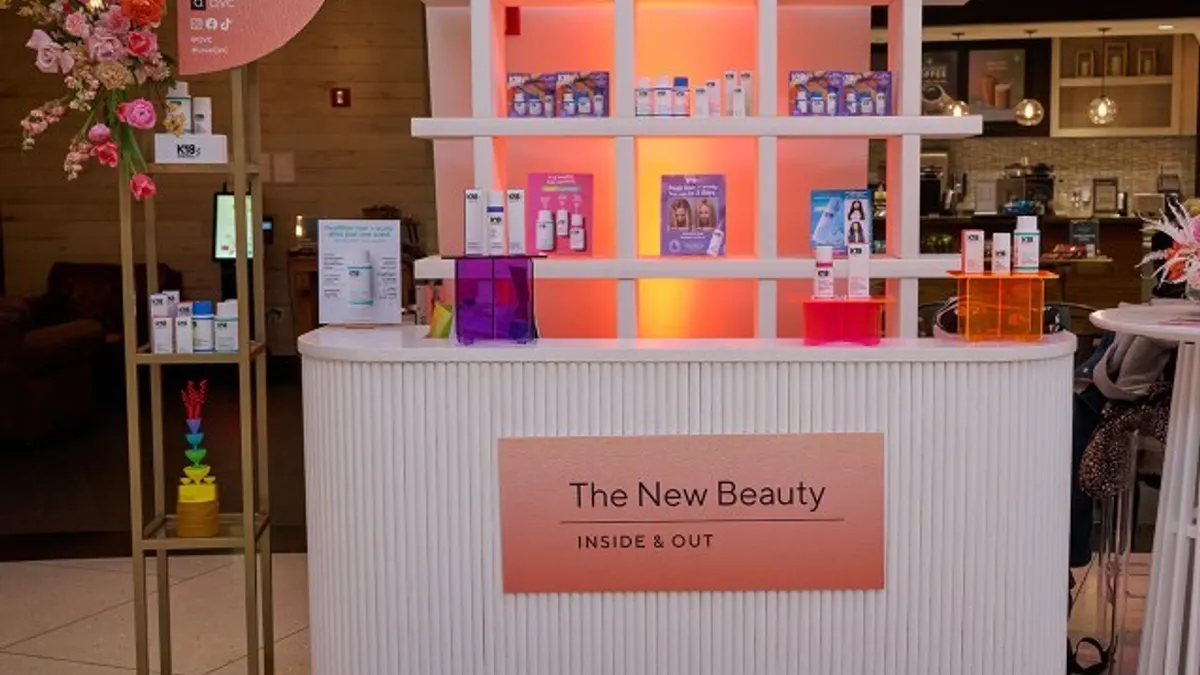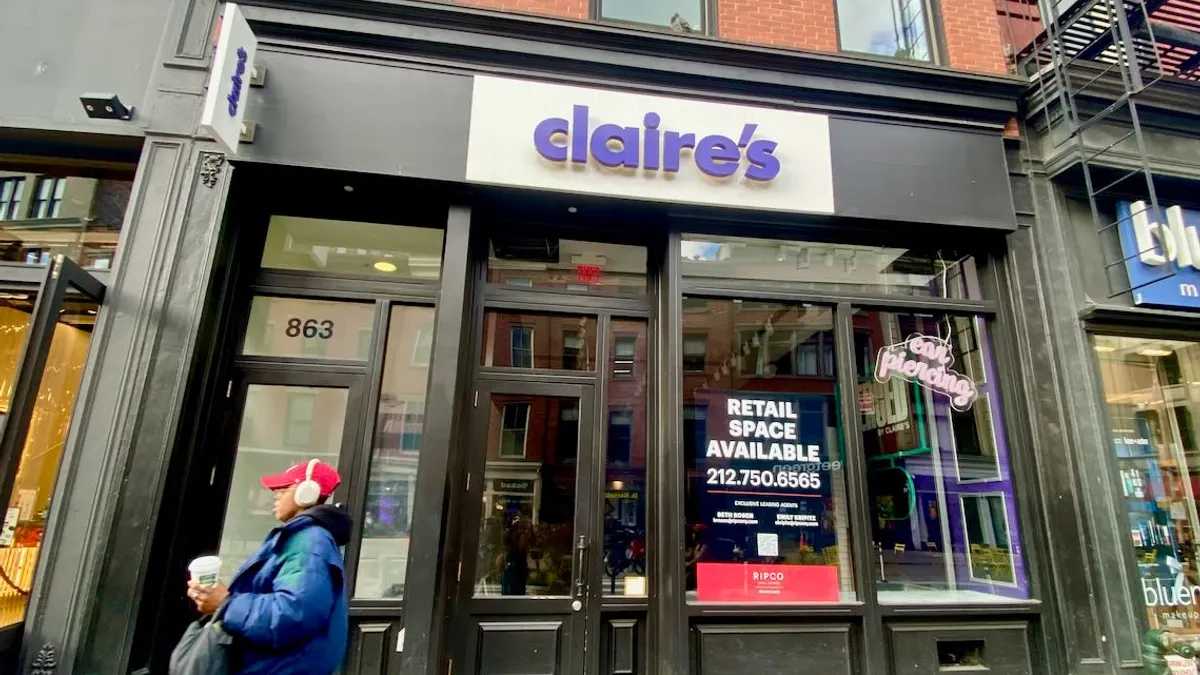In addition to challenging traditional retailers on many fronts, with vast shipping and fulfillment operations and a marketplace to shore up its endless aisle, Amazon is staking a claim in merchandising both commodities and specialties, with its own private and exclusive brands encompassing categories from batteries to mattresses.
As a tech company as much as a retailer, Amazon has been able to leverage data from brands — those sold on its primary site as well as through its third-party sellers — to develop products that are good enough or close enough to the originals, usually at lower price points, and thereby gain an edge.
"Amazon has hit that fantastic balance — they figured out the right formula for pricing, and they're releasing these products that have Amazon's backing," Oweise Khazi, senior principal at Gartner L2, told Retail Dive in an interview. "AmazonBasics batteries, for example, these come with Amazon's stamp of approval — and this is still a company and a brand which consumers trust."
But there are vulnerabilities, and most recently, Juozas Kaziukėnas, founder of Marketplace Pulse, dug into the performance of Amazon's private brands and concluded that they're not doing as well as many might think.
"Amazon's private label efforts have been given too much credit, both in their ability to disrupt categories and the capability to utilize internal data," he wrote in his report, released this week. "Outside the outliers like AmazonBasics batteries, most brands launched didn't do well, despite the unfair access Amazon has to its platform."
The 'Amazon' advantage
Saying that Amazon's access to its own platform is "unfair" may seem like a stretch, but the company does seem to use it in ways that take run-of-the-mill marketing to new levels. Just recently, for example, Amazon experimented with pushing its own batteries when customers went to buy through a competitor's sponsored search result. And the retailer is known to use data from brands selling on its site to design its own goods.
Furthermore, without "Amazon" in the name, the e-retailer's private brands are at risk of failing to capture consumers' attention, Kaziukėnas maintains. Both Khazi and Danny Silverman, chief marketing officer at Edge by Ascential, however, say the longstanding success of brands like "AmazonBasics" and "Amazon Essentials" has more to do with how long they've been around to make their mark.
"It's a question more of correlation than causality," Khazi said. "Brands with 'Amazon' in their titles are those that have been ahead of the curve, and are some of the early private label brands. They had more of a head start and so are a little more well known and have more brand equity."
That also ignores how few of them there really are, Silverman said. "Only 4 of the top 10 brands have Amazon in the name," he told Retail Dive in an email. "These brands and Pinzon are some of Amazon's oldest house brands, and thus have built a much larger base of sales over time — this likely explains more of the disparity than the naming strategy."
Even Kaziukėnas says that the issue requires more research. "[I]t is true that the brands with Amazon in the name have been around longer than other brands and thus their share of [sales] last year is a lower percent than the share of lifetime sales," he told Retail Dive in an email. "We will be able to better measure this difference in the future."
Amazon's barriers
Amazon's private and exclusive strategy can't properly be described as a juggernaut, at least not yet. As Kaziukėnas notes, some do better than others. The company finds smoothest sailing in commodities or areas where consumers are brand agnostic, or both, according to Khazi. While Amazon was expected to prevail in pet care when it launched its "Wag" label, for example, that has proven to have a higher barrier to entry than expected, according to Gartner L2 research.
"We haven't seen too much traction with Wag," Khazi said. "Brands like Purina enjoy consumer loyalty and people care about what they're feeding their dogs."
That leaves well-established brands better able to maintain their position and their prices, considering, as Kaziukėnas also notes, that Amazon pretty much fights on price.
But it would also be a mistake to think, as Kaziukėnas also suggests, that Amazon isn't employing data well. "Amazon is definitely aware of which brands gain traction and which do not, they're definitely playing the longer, holistic game," Khazi said. "This is definitely not news to Amazon."
The brick-and-mortar advantage
Amazon's private label apparel, especially for women, appears to be struggling, according to research from Amazon seller data platform Jungle Scout. That found that, of the 10 worst performing Amazon private labels in any category, nine were women's or girls clothing, and most (82%) of its women's clothing lines fail to sell more than 100 units per month.
That's probably why Amazon is experimenting with ways to get customers to try its clothing labels, including its Stitch Fix-like Prime Wardrobe program, which is now open to all Prime members. The e-commerce giant, like other direct-to-consumer apparel retailers, is probably running up an enduring element of apparel shopping: that shoppers not only want to try things on in person, but also still prefer finding merchandise in stores, according to research from Magid, which found that merchandising within a physical store promotes trust.
But Amazon is not to be counted out in fashion, either, according to Khazi, who notes that Amazon Essentials, its Goodthreads brand and other labels, including baby and children's clothing that are exclusive to Amazon, are doing very well.
"What is really interesting and what brands should make sure they are wary of — even in categories that are hard to break into — is when Amazon private labels have some traction and do carve out a niche," he said.
Brands beware
The trouble with reports of Amazon's weaknesses in its private label operations is that they are likely snapshots in time that fail to capture the company's prevailing advantage — its ability to swiftly pivot and to play the long game, according to Gartner L2's Khazi and Edge by Ascential's Silverman.
"Amazon is indeed experimenting at a rapid rate, with the expectation that many will fail," Silverman said. "Brands don't need to worry about the 100s of brands that Amazon is putting out. They need to worry about the 1 in their category that succeeds. Amazon's willingness to try and fail is one of their greatest strengths because few, if any, brands have the resources to do the same."
The soft spots in Amazon's private label strengths may be real, and it's true that it's finding more success in some categories than in others. "But looking at it with such a wide funnel and such a wide lens is a mistake," Khazi said. "There are a lot of companies who are threatened by private label by Amazon."






















